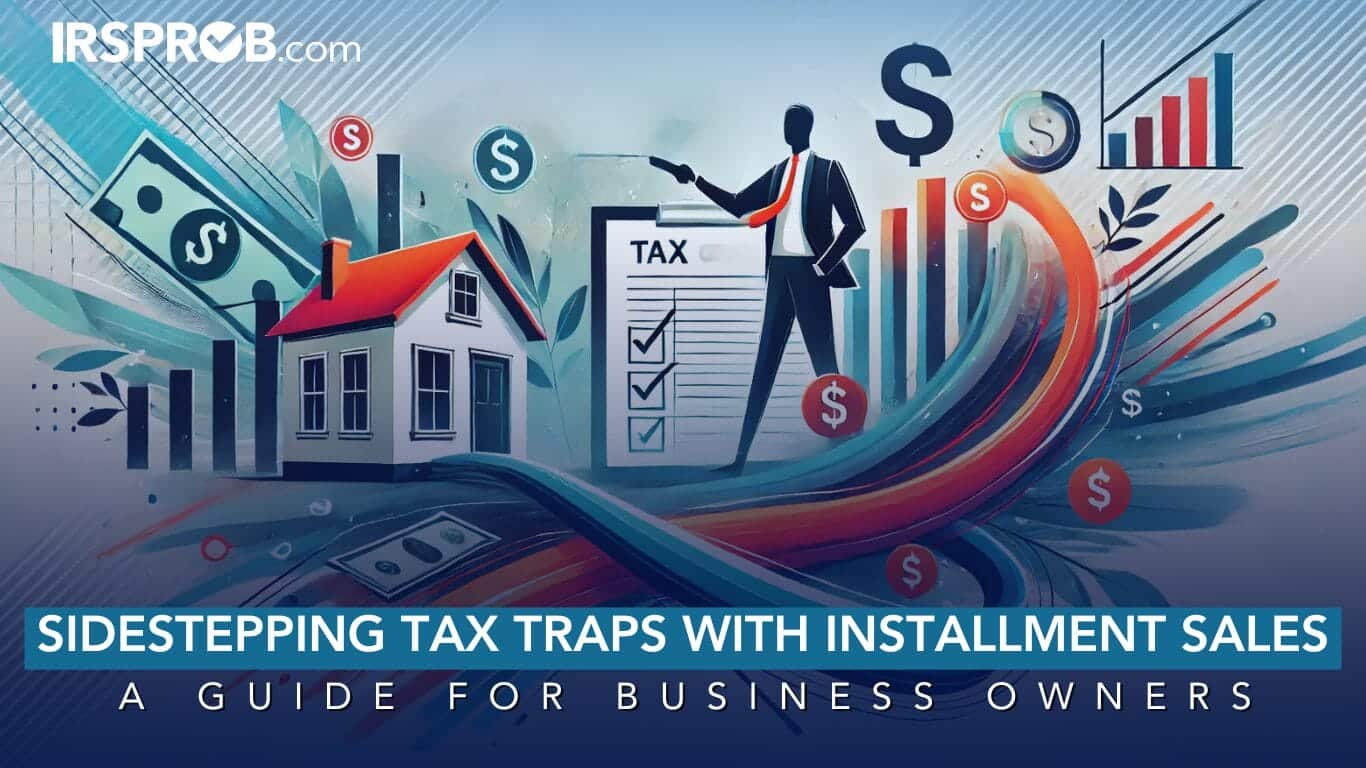
Selling real estate can be a complex process, especially if you’re looking to structure the sale in a way that benefits both you and the buyer. One strategy that savvy business owners use to ease the tax burden is the installment sale. This method allows sellers to defer some of their tax liability over multiple years, providing both tax relief and a steady stream of income. But while installment sales can be beneficial, there are some tax pitfalls you must avoid, particularly when selling to related parties.
What is an Installment Sale?
An installment sale occurs when you sell a property and agree to receive payments over a period extending into at least one year beyond the year of the sale. Instead of paying taxes on the entire gain in the year of the sale, you’re only taxed on the portion of the gain that corresponds to the payments received that year. This method spreads out the tax burden, allowing you to defer tax liability and possibly reduce your overall tax bill.
Tax Benefits of Installment Sales
Installment sales offer two main tax advantages:
- Tax Deferral: You don’t have to pay the entire capital gains tax up front. Instead, it’s spread out over the years as you receive payments.
- Potentially Lower Tax Rates: Depending on your income and other factors, deferring some of your gains to future years may lower your taxable income for the current year and potentially place you in a lower tax bracket.
Understanding Capital Gains Tax
For most business owners, long-term capital gains are taxed at favorable rates compared to ordinary income. In 2024, the maximum rate for long-term capital gains is 20%, but most taxpayers will pay no more than 15%. However, for high-income earners, the net investment income tax (NIIT) may add another 3.8% to the bill, bringing the effective rate up to 23.8%. Short-term gains, on the other hand, can be taxed at rates as high as 37%, with the NIIT pushing that rate to 40.8%.
State taxes can further increase the burden, potentially pushing the combined rate above 50% in some cases. Long-term gains related to depreciation, such as those from real estate, may be taxed at a special 25% rate rather than the standard 15% or 20%.
Example: How an Installment Sale Works
Let’s say you purchased commercial real estate several years ago for $600,000. In 2024, you sell it for $1.5 million in five annual payments of $300,000 each. The taxable portion of the gain is calculated based on your gross profit ratio. Here’s how it works:
- Gross Profit: $900,000 ($1.5 million – $600,000 adjusted basis)
- Gross Profit Ratio: 60% ($900,000 ÷ $1.5 million)
- Taxable Gain on Each Payment: 60% of each $300,000 installment, or $180,000.
In the first year, you’re only taxed on $180,000 of the gain, which spreads out your tax liability and may reduce your exposure to the maximum capital gains tax rate and the NIIT.
Watch Out for Depreciation Recapture
If you’ve claimed deductions for depreciation under Section 179 or bonus depreciation rules, you may face higher taxes on that portion of the gain. Depreciation recapture is taxed as ordinary income, which could mean a rate as high as 37% for high-income taxpayers. Unfortunately, this part of the gain doesn’t qualify for installment sale treatment, meaning you’ll have to recognize it all in the year of the sale.
The Related-Party Trap
One major pitfall of installment sales is the tax treatment for sales to related parties. If you sell property to a related party, such as a family member or a business entity you’re connected to, you risk triggering immediate tax liability. The tax law presumes that these sales may be structured to avoid taxes. If the related party sells or disposes of the property within two years, you’ll be required to pay the deferred tax immediately.
To avoid this trap, make sure the related party holds onto the property for at least two years. You can include a provision in the contract that explicitly states this requirement to protect yourself from unexpected tax bills.
Who Qualifies as a Related Party?
The IRS defines related parties broadly, including not only close family members like your spouse, children, and siblings but also partnerships or corporations you control and estates or trusts you’re connected to.
Additional Considerations
- Interest on Deferred Tax: If the total sales price of your property exceeds $150,000 and your installment obligations are greater than $5 million, the IRS may require you to pay interest on the deferred tax. This rule doesn’t apply to all sales, but it’s something to keep in mind when structuring large transactions.
The Bottom Line for Business Owners
Installment sales can be a powerful tool for business owners looking to defer taxes and improve cash flow. However, the tax rules around installment sales are complex, particularly when related parties are involved. By working closely with a tax professional and structuring the sale carefully, you can sidestep potential tax traps and maximize the financial benefits of your real estate sale.
To ensure you’re handling your sale in the most tax-efficient way, be sure to follow IRS guidelines and avoid triggering unnecessary taxes through depreciation recapture or related-party rules. With careful planning, you can reap the rewards of an installment sale while minimizing your tax burden.








